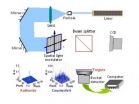(Press-News.org) Caffeine, which was extensively researched for possible links to birth defects in animals and cardiovascular disease in humans over 30 years ago and then exonerated, has become the focus of renewed concerns as caffeine-containing energy drinks have surged in popularity. However, according to a June 23rd panel discussion at the 2014 Institute of Food Technologists (IFT) Annual Meeting & Food Expo® in New Orleans, a rich database of health evidence exists confirming the safety of caffeine for consumers at current levels of exposure. What isn't known, however, is how caffeine might interact with the myriad of other ingredients found in many energy drinks.
In 2013, the U.S. Congress pressed the U.S. Food and Drug Administration (FDA) to look harder at the safety of caffeine. The FDA responded by sponsoring an Institute of Medicine scientific workshop in August 2013. Two areas of focus that came out of the workshop were the need to identify vulnerable populations that may be at risk from increased caffeine exposure and to pinpoint research gaps that need to be filled.
"I thought we had put these safety issues to bed in the 80s," said James Coughlin, Ph.D. of Coughlin & Associates, a consulting firm based in Aliso Viejo, California. "But today concerns are being raised because no one has gone back to look at this literature. There has been a lot of bad science related to caffeine that is fueling concerns."
The FDA has begun an internal evaluation of caffeine's safety and is expected to issue guidelines.
James C Griffiths, Ph.D, Vice President of Science & International Affairs at the Council of Responsible Nutrition, in Washington, D.C. and a member of the panel, said, "CRN believes that no new regulations are necessary concerning caffeine-containing products, since there is overwhelming scientific evidence demonstrating its safety. We're all waiting to see what the FDA is going to do."
INFORMATION:About IFT
This year marks the 75th anniversary of the Institute of Food Technologists. Since its founding in 1939, IFT has been committed to advancing the science of food, both today and tomorrow. Our non-profit scientific society—more than 18,000 members from more than 100 countries—brings together food scientists, technologists and related professionals from academia, government and industry. For more information, please visit ift.org.
Energy drinks raise new questions about caffeine's safety
2014-06-24
ELSE PRESS RELEASES FROM THIS DATE:
Ghost writing the whip
2014-06-24
WASHINGTON D.C., June 24, 2014 – "Ghost imaging" sounds like the spooky stuff of frivolous fiction, but it's an established technique for reconstructing hi-res images of objects partly obscured by clouds or smoke. Now a group of researchers at the National University of Singapore (NUS) is applying the same idea in reverse to securing stored or shared electronic data.
Described in the journal Applied Physics Letters, from AIP Publishing, the work establishes "marked ghost imaging" technology as a new type of multi-layer verification protocol for data storage or transmission.
By ...
Researchers mapping your route from illness to illness
2014-06-24
This is the first time that researchers have analysed big data relating to an entire country's disease development. The new ground-breaking results are based on data from 6.2 million Danes who were followed for 14.9 years – using state-of-the-art systems biology, researchers have boiled down the massive amount of data to 1,171 so-called thoroughfares with central information on the course of diabetes, chronic obstructive pulmonary disease, cancer, arthritis and cardiovascular disease. The researchers are, in other words, able to forecast whether you are driving on a risky ...
New technology: The goose bump sensor
2014-06-24
WASHINGTON D.C., June 24, 2014 – Can emotional states be measured quantitatively, and if so what would advertising, manufacturing and social media companies do with that data? Imagine a world in which a consumer's real-time physical and emotional response helped to determine his/her experience of music, online ads or the temperature in the room.
That may not be so far away -- a team of researchers at KAIST in Daejeon, South Korea has developed a flexible, wearable 20mm x 20mm polymer sensor that can directly measure the degree and occurrence on the skin of goose bumps ...
Roux-en-Y gastric bypass surgery may reduce heart disease risk
2014-06-24
CHICAGO, IL—Obese patients with Type 2 diabetes who don't have excessive surgical risk may find that Roux-en-Y gastric bypass (RYGB) surgery can help them reduce their risk of heart disease, a new clinical trial shows. The results were presented Tuesday at ICE/ENDO 2014, the joint meeting of the International Society of Endocrinology and the Endocrine Society in Chicago.
"There is emerging evidence highlighting the potential health benefits of bariatric surgery in managing obese patients with Type 2 diabetes. In the past, lifestyle advice and medications provided the ...
Sleep, mood improves after substantial weight loss
2014-06-24
CHICAGO, IL—Obese adults who lose at least 5 percent of their body weight report that they sleep better and longer after six months of weight loss, according to a new study. The results were presented Tuesday at the joint meeting of the International Society of Endocrinology and the Endocrine Society: ICE/ENDO 2014 in Chicago.
"This study confirms several studies reporting that weight loss is associated with increased sleep duration," said the study's lead investigator, Nasreen Alfaris, MD, MPH, a fellow in the Department of Medicine at the Perelman School of Medicine ...
Gastric bypass surgery improves diabetic patients' quality of life
2014-06-24
CHICAGO, IL—An intensive weight loss program involving lifestyle modifications improves obese diabetic patients' physical and mental health as well as gastric bypass surgery does over two years, but the weight loss surgery leads to a greater reduction in adverse effects of obesity on quality of life. These results, from a new study in patients with Type 2 diabetes, were presented Tuesday at the joint meeting of the International Society of Endocrinology and the Endocrine Society: ICE/ENDO 2014 in Chicago.
Gastric bypass also led to patients having a somewhat greater reduction ...
Synthetic triterpenoids show promise in preventing colitis-associated colon cancer
2014-06-24
Researchers from Case Western Reserve and Dartmouth universities have shown that a class of small antioxidant molecules carries enormous promise for supressing colon cancer associated with colitis. These findings, published in an early June edition of the Journal of Clinical Investigation, offer hope that physicians ultimately will be able to reduce dramatically the number of sufferers of this inflammatory bowel disease (IBD) who go on to develop colon cancer.
The molecules, known as synthetic triterpenoids, appear to achieve their positive effect in two ways. First, ...
Helpful bouncing babies show that moving together to music builds bonds
2014-06-24
HAMILTON, ON, June 24, 2014 — Whether they march in unison, row in the same boat or dance to the same song, people who move in time with one another are more likely to bond and work together afterward.
It's a principle established by previous studies, but now researchers at McMaster University have shown that moving in time with others even affects the social behavior of babies who have barely learned to walk.
"Moving in sync with others is an important part of musical activities," says Laura Cirelli, lead author of a paper now posted online and scheduled to appear ...
Food scientists working to diminish, mask bitter tastes in foods
2014-06-24
Food scientists are working to block, mask and/or distract from bitter tastes in foods to make them more palatable to consumers, many of whom are genetically sensitive to bitter tastes, according to a new presentation at the 2014 Institute of Food Technologists (IFT) Annual Meeting & Food Expo® in New Orleans.
"Many factors go into why we eat what we do," said John Hayes, PhD, assistant professor of food science and director of the Sensory Evaluation Center at Pennsylvania State University, with taste consistently ranking as number one. There's also "a huge variability ...
Not everyone wants cheering up, new study suggests
2014-06-24
You may want to rethink cheering up your friends who have low self-esteem because chances are they don't want to hear it.
People with low self-esteem have overly negative views of themselves, and often interpret critical feedback, romantic rejections, or unsuccessful job applications as evidence of their general unworthiness. A new study from researchers at the University of Waterloo and Wilfrid Laurier University found that they likely don't want you to try to boost their spirits.
"People with low self-esteem want their loved ones to see them as they see themselves. ...

